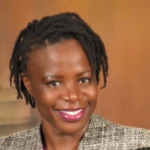19 December 2022
Following the General Annual Meeting, we are pleased to welcome our four new board members: Peter Vickerman, Ernesto Cortes, Mercy Nyakowa and Angela McBride.
Alongside welcoming our new board members we would like to thank Julie Bruneau, Matt Hickman and Margaret Hellard, who have stepped down from the board, for their tireless contribution to INHSU. We look forward to continued collaboration in the the future.
 Ernesto Cortés, Costa Rica
Ernesto Cortés, Costa Rica
Ernesto Cortés is a drug user activist from Costa Rica. He is the Executive Director of the Costa Rican Association on Drug Studies and Interventions (ACEID), member of the Costa Rican Association of Families of Incarcerated People (FPU) and secretariat of the Latin American Network of People Who Use Drugs (LANPUD).
He has a degree in Social Anthropology from the Universidad de Costa Rica, a master’s degree in Criminology from the Universidad de Cooperación Internacional (UCI) and another master´s degree in mental health from the Universidad Miguel Hernández (UMH) in Valencia, Spain.
He is currently the vice chair of the New York NGO Committee on Drugs (NYNGOC), researcher at the Research Collective on Drugs and the Law (CEDD), and professor of Anthropology at the Universidad de Costa Rica. He has specialized in research and advocacy in drug policy, harm reduction and prison systems. Has published several papers and a couple books.
 Angela McBride, South Africa
Angela McBride, South Africa
Angela McBride is a woman who uses drugs and the Executive Director for the South African Network of People who Use Drugs (SANPUD). Angela has worked in the field of harm reduction for over 7 years, with lived experience working and participating in abstinence programs and centres while studying at the University of Pretoria, prior to being introduced to harm reduction as an intervention to mitigate the harms experienced by people who use drugs.
Angela worked with experts on the formative assessment and first needle syringe pilot project in South Africa, working as a peer educator and later coordinator for the needle/syringe programs and peer-involved harm reduction projects in South Africa. During this time Angela also assisted in the BMSF Hepatitis research study that took place, conducting testing and counselling as well as training and information sharing on hepatitis.
 Mercy Nyakowa, Kenya
Mercy Nyakowa, Kenya
Mercy Nyakowa is the Viral Hepatitis lead for the People Who Use/ Inject Drugs at the National AIDS and STI Control Program (NASCOP) within the Kenyan Ministry of Health. She is a certified implementation Scientist with the Department of Global Health at the University of Washington. She has been the lead of various Studies among the PWIDs in Kenya ranging including HCV treatment efficacy and reinfection studies whose findings facilitated treatment scale up in the country.
Mercy is involved in research that spans from designing, implementing, disseminating and bringing to scale evidence-based health interventions. Her research interests are in implementation science with the direct translation of research results into policy and practice. She is a member of Kenya National Harm reduction technical working groups where she is involved with the development of National level strategic plans, National Guidelines, monitoring and evaluation tools.
 Peter Vickerman, UK
Peter Vickerman, UK
Peter Vickerman is a Professor in infectious disease modelling at the University of Bristol. He has 25 years’ experience in infectious disease modelling.
His research focuses on the use of mathematical modelling to help understand the transmission of different infectious diseases and impact and cost-effectiveness of prevention measures. Specific expertise focuses on the transmission of HIV, HCV and other STIs amongst different high-risk groups including female sex workers, men who have sex with men and injecting drug users.
He has extensive experience of conducting collaborative research with organisations in Asia, sub-Saharan Africa, Eastern Europe and the UK. He has contributed to numerous international advisory groups (including WHO, U.S. Centre for Disease Control and Prevention, U.S. National Institute of Health, NICE Public Health guidance committees and Public Health England).

